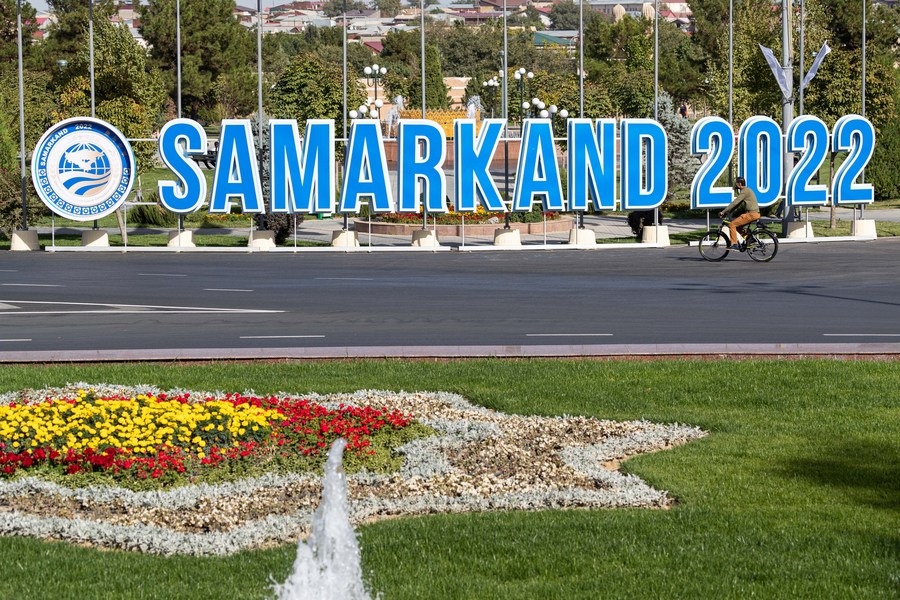Hope from the SCO Samarkand Summit

The Shanghai Cooperation Organization (SCO), a Eurasian political, economic and security grouping, was founded in Shanghai on June 15, 2001, by China, Russia, Uzbekistan, Kazakhstan, Kyrgyzstan and Tajikistan. The 22nd summit of the SCO member states was held in Samarkand, Uzbekistan, on Thursday and Friday.
With hope to benefit each other and the wider world, SCO countries are seeking progress in development and peace. SCO countries host nearly half of the world’s population and contribute over 30 percent of global GDP. Although they face myriad global, regional, and bilateral challenges, they are working earnestly to carve a path out under the SCO framework.
China has sent several messages. This was Chinese President Xi Jinping’s first trip abroad since the COVID-19 pandemic hit the world in early 2020. Back in 2013, neighboring Kazakhstan was where President Xi unveiled the vision of the Silk Road Economic Belt, which became known as, alongside the 21st-century Maritime Silk Road, the Belt and Road Initiative (BRI). After nine years, the BRI should be credited for visible and tangible achievements in infrastructure including roads and rails in dozens of countries across Eurasia and Africa. To address global challenges, President Xi introduced the Global Development Initiative (GDI) and Global Security Initiative (GSI) to complement the BRI.
With the signing a Memorandum of Obligations to become a permanent SCO member, Iran has received a big boost. India will also gain much prestige from the SCO, as the rotating presidency will be with the country this year.
Facing an account deficit and increasing costs of petroleum imports, Pakistani Prime Minister Shehbaz Sharif spoke with Russian President Vladimir Putin, who said Russian pipeline gas was a possibility “with some infrastructure already in place in Russia, Kazakhstan and Uzbekistan.”
In spite of all this, challenges remain. Climate change, for example. Floods in Pakistan, a country already under pressure because of fiscal deficit, have devastated the people and economy. Forums like SCO can help rebuild Pakistan’s flood-hit economy.
Pakistan-India bilateral ties are another example. Both countries were admitted as SCO members in 2017. In his speech at the summit, Indian Prime Minister Narendra Modi proposed the idea of free transit rights among SCO member countries, seeking access to Afghanistan via Pakistan, but Pakistan was unwilling to consider the proposal because of its dispute with India on the Kashmir issue.
Afghanistan, which has observer status in SCO, also faces a series of challenges from security to economics. After the U.S. failure in the region, the SCO has a good chance of guiding Afghanistan towards some semblance of peace and stability.
Under the SCO framework, all countries have worked to embark on a new path of “pursuing dialogue instead of confrontation and building partnerships instead of alliances.” This is good for the polarized world in which we live. The Shanghai Spirit and the Samarkand Declaration are the way forward.
The author is president of the Institute of Media & Communications (IMC) in Pakistan. A longtime China watcher and an award-winning journalist, he writes on issues of significance to Pakistan, CPEC, and BRI.